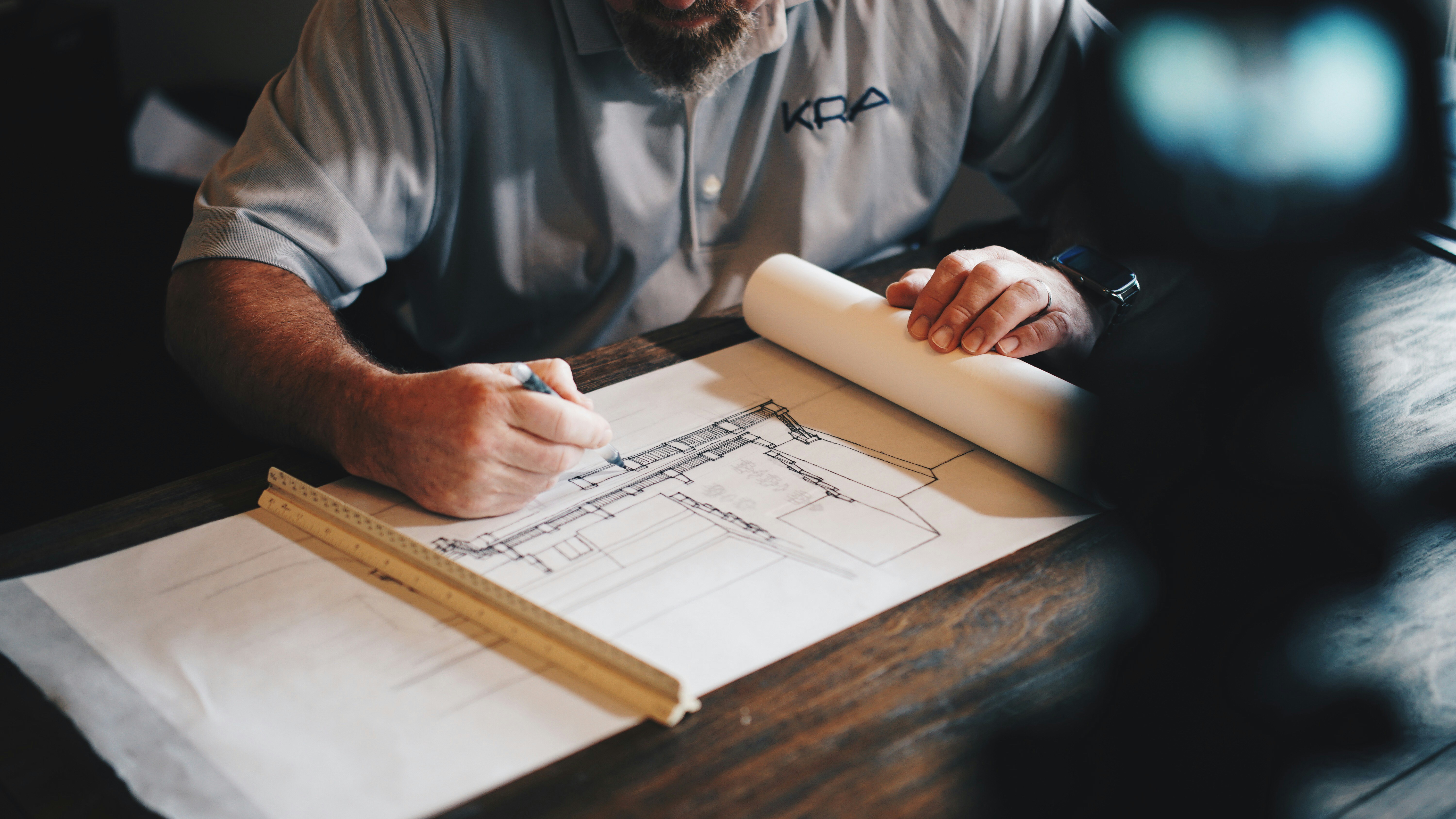
Achieve Success With Your Home Building Budget Planner
Many homebuyers worry about going over budget when building their dream home. This post, will guide readers through essential steps like setting financial goals and tracking expenses. By understanding how to collaborate with professionals and prepare for unexpected costs, readers will ensure a smoother construction experience. This article addresses the fear of financial mismanagement and provides practical solutions to help keep projects on track. Engaging with this content will empower readers to feel in control of their home-building budget.
Key Takeaways
Understanding key costs helps homeowners create an effective budget for construction projects
Setting aside contingency funds ensures coverage for unexpected expenses during the building process
Breaking down labor and material expenses into categories aids in accurate budgeting
Regular financial check-ins allow homeowners to adjust projections and maintain budget control
Building strong relationships with contractors and suppliers helps secure better pricing and transparency
Understand the Components of a Home Building Budget Planner

Identifying key costs in home construction helps homeowners plan effectively for custom home projects. Understanding the importance of contingency funds ensures that unexpected expenses are covered. Furthermore, outlining labor and material expenses with accurate percentages allows for better cash flow management throughout the building process. Together, these elements create a comprehensive budget planner for success.
Identify Key Costs Involved in Home Construction
Understanding key expenses involved in home construction is essential for creating a successful budget planner. These include costs for materials, labor, and subcontractors, which can significantly affect the overall price of a home project. In addition to these primary expenses, it's vital to consider additional items like the punch list, which outlines any final tasks needed before project completion, ensuring that all aspects are covered for a smooth home improvement process.
Learn About Contingency Funds and Their Importance
Contingency funds play a crucial role in effective project management throughout home construction. Typically set at 10-20% of the total budget, these funds ensure resources are available for unexpected expenses, such as price increases for materials or unforeseen labor fees. Homeowners must recognize that including a contingency in their budget can protect their income against potential financial strain, allowing for a smoother building process without surprises.
Outline Labor and Material Expenses for Accuracy
Outlining labor and material expenses accurately is a key step in mastering a home building budget planner. Homeowners should break down these costs into specific categories, such as framing, plumbing, and electrical work, to get a clearer picture of total expenses. Keeping detailed records of quotes from contractors and suppliers helps in refining these estimates, ensuring there are no surprises as the project progresses:
Framing costs
Plumbing expenses
Electrical work fees
Finishing materials
Labor charges
Set Financial Goals for Your Home Building Project

Defining the overall budget scope is the first step in setting financial goals for a home building project. Next, homeowners must distinguish between essential and non-essential expenses to prioritize spending. Finally, creating a timeline for financial milestones keeps the project on track and helps manage costs efficiently. Each aspect is vital in ensuring a successful and well-planned building experience.
Define Your Overall Budget Scope
Defining the overall budget scope is a fundamental step in the home building process, as it sets the foundation for a successful project. Homeowners should start by assessing their financial situation, including available funds and potential financing options, to determine what they can afford. A clear budget outline will help manage expectations and enable homeowners to make informed decisions throughout the building journey, preventing unforeseen financial stress.
Assess available funds
Explore financing options
Outline expenses
Set realistic expectations
Determine Essential vs. Non-Essential Expenses
When determining essential versus non-essential expenses, homeowners should prioritize their needs carefully. Essential expenses include structural elements, such as foundations, roofing, and plumbing, which are critical for safety and functionality. Non-essential expenses might involve aesthetic enhancements like high-end fixtures or landscaping, which, while desirable, can be postponed if budget constraints arise. Understanding this distinction helps allocate funds wisely, ensuring that the most crucial aspects of the home construction project are completed without unnecessary financial strain.
Create a Timeline for Financial Milestones
Creating a timeline for financial milestones is essential in mastering a home building budget planner. Homeowners should outline key dates for expenditures, such as deposits, procurement of materials, and labor costs. This practice ensures that spending aligns with project progress, helping to maintain financial control and avoid overspending throughout the building process.
Utilize Technology for Effective Budget Management

Homeowners can significantly enhance their budgeting efforts by utilizing technology for effective management. They can explore various software options tailored for home budget planning, integrate mobile apps for tracking expenses on the go, and compare online tools to improve budgeting efficiency. Each of these approaches offers practical insights to streamline the financial aspect of the home building journey.
Explore Software Options for Home Budget Planning
When exploring software options for home budget planning, homeowners can choose from various programs specifically designed to simplify budgeting tasks. Tools like budgeting apps and specialized software allow users to input costs, track expenses, and even project future spending trends, making it easier to stay on course financially. By utilizing these user-friendly technologies, homeowners can gain insight into their budget, identify potential overspending, and adjust plans accordingly, ensuring their home building journey remains financially sound.
Integrate Mobile Apps for on-the-go Tracking
Integrating mobile apps for on-the-go tracking can greatly enhance a homeowner's ability to manage their budget efficiently during the home building process. These apps allow users to input expenses, compare costs in real-time, and receive alerts about budget limits, all while on the move. Utilizing such technology not only keeps spending in check but also adds convenience, ensuring that homeowners remain informed and can make quick financial decisions as needed.
Compare Online Tools for Budgeting Efficiency
Homeowners looking to improve their budgeting efficiency can find various online tools tailored for effective budget management. Comparing different budgeting software can help identify features that best align with specific needs such as expense tracking, real-time cost comparisons, and user-friendly interfaces. By taking the time to assess various platforms, users can choose a solution that enhances their financial oversight throughout the home building process:
Evaluate different features for tracking expenses.
Identify real-time cost comparison options.
Assess user interface design for ease of use.
Track and Adjust Your Budget Throughout the Construction Process

Implementing regular financial check-ins is essential for maintaining control during home construction. Keeping detailed records of all transactions ensures transparency and accuracy. Moreover, adjusting projections based on real-time changes allows homeowners to adapt to unexpected costs. These practices collectively enhance budgeting effectiveness and contribute to a successful home building experience.
Implement Regular Financial Check-Ins
Implementing regular financial check-ins is essential for keeping a home-building budget on track. Homeowners should set specific intervals—like weekly or bi-weekly—to review actual expenses against the budgeted amounts. This practice not only highlights potential overspending but also allows for timely adjustments, ensuring financial control throughout the building process.
Keep Detailed Records of All Transactions
Keeping detailed records of all transactions during the home building process is vital for effective budget management. By documenting every expense, from materials purchased to labor costs, homeowners can maintain transparency and ensure that spending aligns with the established budget. This practice not only helps identify any discrepancies but also assists in making informed financial decisions moving forward:
Track material purchase receipts for accuracy.
Log labor costs and subcontractor invoices.
Regularly update financial records to reflect changes.
Review transaction logs regularly for potential savings.
Adjust Projections Based on Real-Time Changes
Adjusting projections based on real-time changes is vital to managing a home-building budget effectively. When unforeseen costs arise or project timelines shift, homeowners must update their budget to reflect these changes promptly. By regularly reassessing expenses and modifying forecasts, homeowners can stay informed and avoid financial pitfalls as the construction progresses.
Collaborate With Professionals for Budget Accuracy

Working closely with contractors is essential to confirm estimates and ensure accuracy in budgeting. Seeking advice from financial advisors on budget strategies can provide valuable insights into managing funds effectively. Additionally, discussing cost-saving measures with suppliers can lead to significant savings, enhancing overall budget management. Each of these steps supports a successful and well-planned budget for home construction.
Work Closely With Contractors to Confirm Estimates
Maintaining open communication with contractors is vital for confirming estimates and ensuring budget accuracy. Homeowners should not hesitate to ask questions about cost breakdowns and seek clarification on any ambiguous charges. This approach not only builds trust but also helps in verifying that estimates align with the specific needs of the project:
Seek Advice From Financial Advisors on Budget Strategies
Seeking advice from financial advisors can significantly enhance a homeowner's budget strategy for building projects. These professionals offer insights on effective fund management, helping homeowners navigate financing options and establish realistic financial goals. By collaborating with a financial expert, homeowners can prepare for unexpected expenses, ensuring their budget remains aligned with their overall vision for their dream home.
Discuss Cost-Saving Measures With Suppliers
Discussing cost-saving measures with suppliers can greatly benefit homeowners looking to build within budget. For instance, asking for bulk purchase discounts or exploring seasonal promotions can lead to significant savings on materials. By fostering strong relationships and open communication with suppliers, homeowners can access valuable insights that guide smart purchasing decisions, ensuring that their home-building project remains financially manageable.
Prepare for Unexpected Expenses During Construction

Creating a buffer in the budget for unexpected expenses is essential for a successful home building project. Homeowners should analyze common issues that lead to budget overages, allowing them to prepare effectively. Additionally, developing a plan for quick financial adjustments ensures that surprises won’t derail progress and keeps the building process on track.
Create a Buffer in Your Budget for Surprises
Creating a budget buffer for unexpected expenses is a smart strategy for any home building project. This buffer, typically around 10-15% of the total budget, allows homeowners to navigate unforeseen costs, such as price hikes in materials or unexpected repairs. By planning for surprises, builders can avoid financial stress and keep the project on track, ensuring that their dream home remains within reach.
Analyze Common Issues That Lead to Overages
Due to several common issues, homeowners often encounter unexpected expenses during construction. Unforeseen site conditions, such as poor soil quality or underground utilities, can lead to significant costs not originally accounted for in the budget. Additionally, changes in material prices or labor rates can further strain financial resources; thus, it is beneficial for homeowners to monitor these factors closely and adjust projections accordingly to avoid budget overruns.
Develop a Plan for Quick Financial Adjustments
Planning for quick financial adjustments is crucial for homeowners during construction projects. When unexpected expenses arise, it’s important to have a responsive strategy in place that allows for swift decision-making. This might involve setting aside a portion of the budget for rapid reallocation or preemptively discussing potential changes with contractors to understand how adjustments can be made efficiently:
Set aside funds for emergencies.
Maintain open communication with contractors.
Regularly review budget forecasts and adjust as needed.
Prepare for flexible financing options if required.
Conclusion
Mastering your home building budget planner is essential for a successful construction project. Homeowners can effectively manage their finances by identifying key costs, establishing contingency funds, and accurately outlining labor and material expenses. Utilizing technology for tracking and adjusting budgets ensures transparency and adaptability throughout the process. A well-structured budget not only helps avoid unexpected financial strain but also paves the way for building the dream home envisioned.


